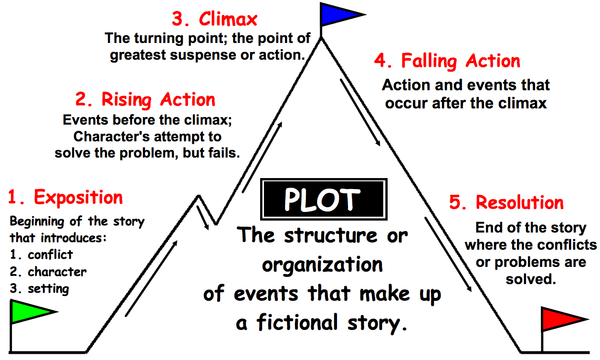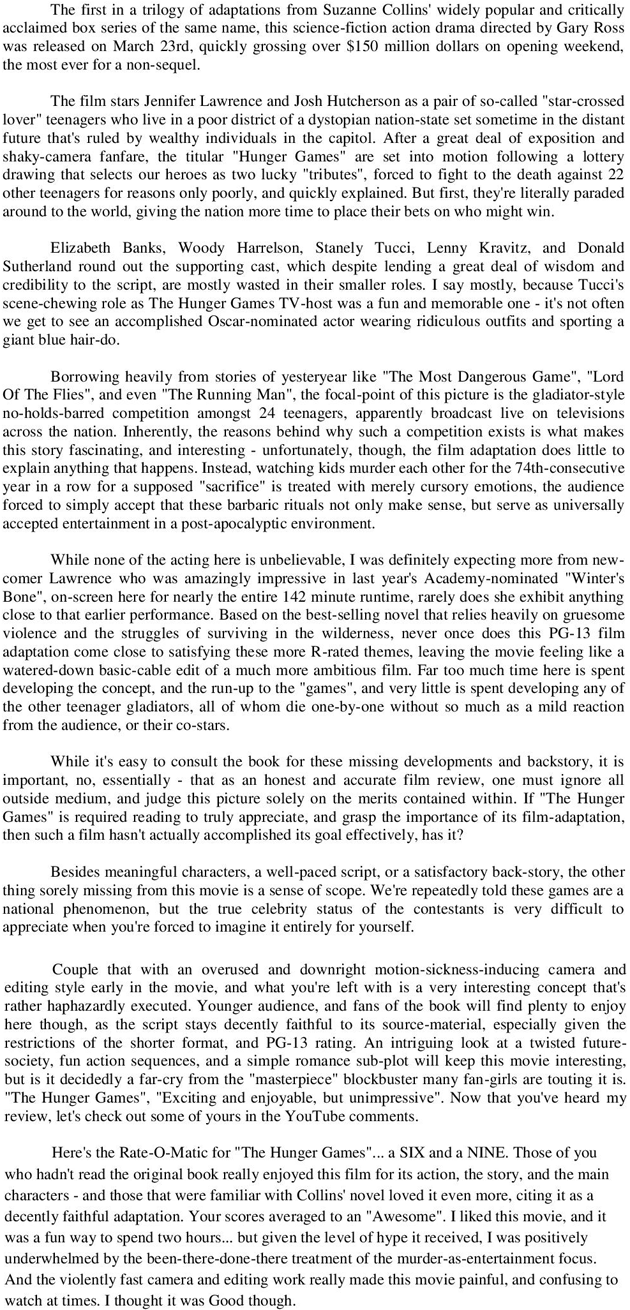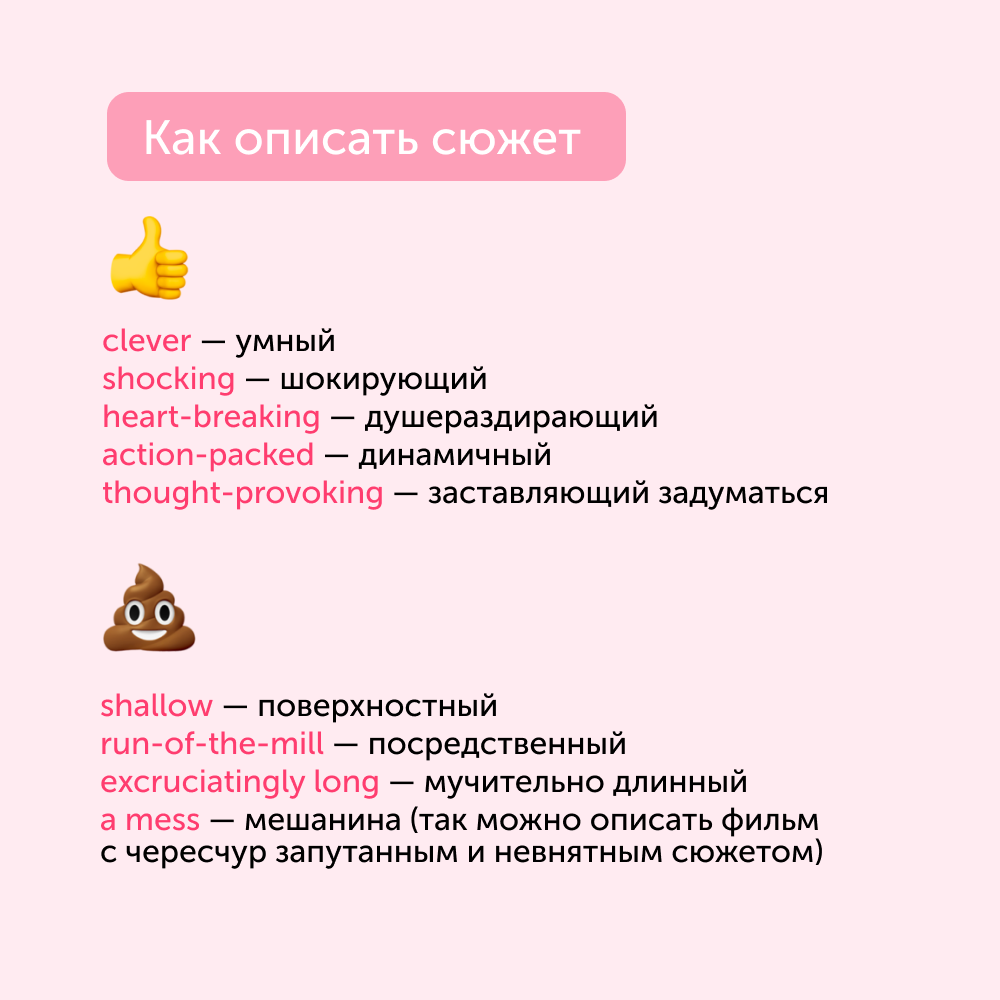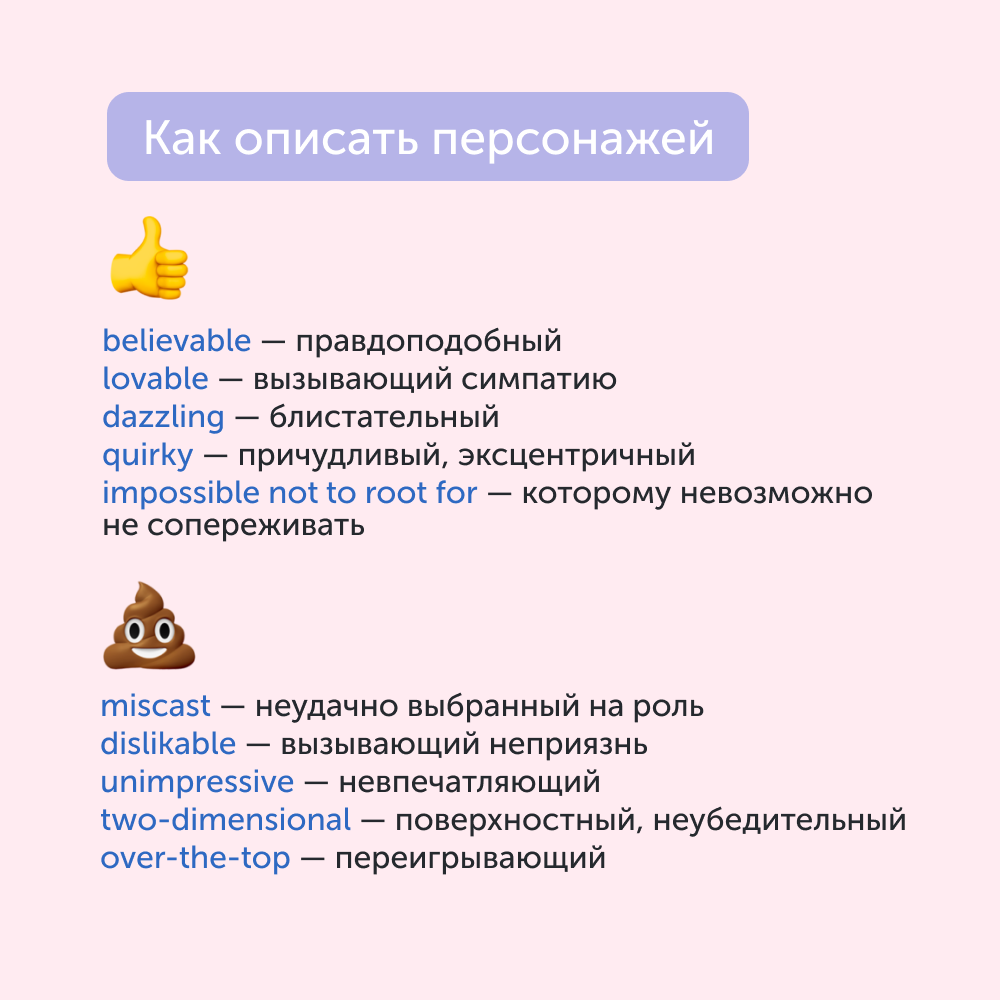Вы уже умеете писать рецензию на книгу на английском языке и сегодня мы будем учиться писать рецензию на фильм на английском языке, что является довольно сложным заданием и вполне может встретиться вам на разных олимпиадах по английскому языку.
Рецензия на книгу и рецензия на фильм примерно одинаковы по сути, но немного отличаются в деталях (лексике). Вы можете использовать полезные выражения из этих двух заданий самостоятельно.
Итак, начнем.
Рецензия на фильм на английском языке
I. Структура (план)
- Введение (режиссер, название фильма, положительное или отрицательное мнение в общих чертах)
- Основная часть (краткое содержание, акцент на отдельных деталях)
- Заключение (суммирование вышеизложенного, рекомендации)
II. Фразы и выражения. Useful Vocabulary for a Film Review
- the producer — режиссер
- The film ranks with … — Этот фильм стоит в одном ряду с
- The action of the film is set in…. — Действие фильма разворачивается в …
- The film starts with a scene — Фильм начинается со сцены…
- fast-moving / slow-moving plot — стремительный / затянутый сюжет
- be starring — играть в главной роли
- the brilliant acting of … — блестящая игра
- What impressed me most is … — Самое большое впечатление на меня произвело
- enhance [ɪn’hɑːn(t)s] the impression — усиливать впечатление
- make an impression — создавать впечатление
- There is another storyline — В фильме есть еще одна сюжетная линия
The Review on the Film «Avatar» by James Cameron (образец)
The main film of the year 2009 is «Avatar» by James Cameron, the producer of such films as «Terminator», «Titanic», «The Strangers». This film ranks with above-mentioned world-famous films and probably belongs to the science-fiction genre.
The action of the film is set on the planet Pandora in the year of 3000. The plot is rather simple: the super hero Avatar is to save the alien planet and to fulfill this mission he struggles with a lot of difficulties.
The main character, Jack Sally, is a disabled navy who has just come back from the war. The film starts with the scene when he is invited to take part in a secret expedition to the planet, inhabited by weird creatures. Thus, he becomes the part of the programme called Avatar. Being turned into a a three-metre giant with blue skin, he is sent to the planet with the help of special «drivers» that link his mind to the mind of Avatar.
What impressed me most is the spectacular world of aliens that we, the audience, see through the eyes of the main character. The special effects and 3D technologies enhance the impression of the bright and colourful world in contrast to the human one, which is grey and dying. The plot of the film is fast-moving with some amusing episodes.
For those who are indifferent to the computer graphics, there is another storyline that is love of «the dream worker» to a beautiful female alien, who, being hostile and suspicious at first, falls in love with him. Such love is forbidden and as a result the pair is chased by the aliens. Happily, they managed to escape in the end. To my mind, the brillant acting of Sam Worthingdon, who is starring in the film, is above all expectations.
To sum up, I can say that the film «Avatar» is that kind of film that takes us to a special world beyond imagination. More than that, it is the film that you want to watch over and over again. Definitely, the new film by Cameron couldn’t be missed.
Случалось ли так, что поход в кинотеатр и новая разрекламированная премьера очередного блокбастера не приносили вам ничего, кроме горького разочарования? Хотелось скорее сглотнуть то неприятное послевкусие от впустую потерянного времени, забыть ошибки режиссера и убогую игру актеров, как страшный сон? И в то же время наверняка есть такие фильмы, которые смогли-таки тронуть до глубины души, и вам хотелось рассказать всем о них. В русском языке есть удивительное множество слов и фраз, помогающих изложить на бумаге весь тот ураган эмоций, который обуревает нас после просмотра фильма или чтения книги. Однако когда дело доходит до английского языка, то в лучшем случае на ум приходят только interesting, exciting and wonderful. С этим надо бороться, друзья!
Содержание ревью
Как узнать, сто́ит ли тратить время на поход в кино или чтение новой книги? Конечно же из ревью! В узком смысле слова «ревью» – это рецензия, ваша личная оценка того, что вы увидели, прочитали или посетили.
Как и у любого вида сочинения, у ревью есть структура:
- Введение (о чем буду говорить).
- Основная часть (что именно понравилось / не понравилось).
- Заключение (смотреть или не смотреть, читать или не читать).
Во введении, как правило, сообщают о том, какое произведение было выбрано для ревью, почему остановились именно на этом произведении, что заставило написать ревью. Особо много писать в начале нет смысла, это должны быть 2-3 предложения, которые расскажут, о чем пойдет речь.
Все самое интересное находится в основной части, здесь можно дать волю своей фантазии. В этой части указывают, какие актеры снимаются в главных ролях и каких персонажей они играют, причем хорошо бы совместить это с событиями фильма. Однако не стоит увлекаться и пересказывать весь сюжет: не забывайте, что ваше ревью может читать человек, который не видел фильм или не читал книгу. В противном случае вы рискуете получить обидное прозвище «спойлер» – от английского to spoil – портить. Это такая неприятная личность, которая портит все удовольствие от фильма или книги путем пересказывания сюжета.
Кстати, о сюжете (plot). Конечно, вам не нужно описывать весь сюжет, но все же его составные части следует знать:
- Exposition (завязка) – начало истории, которое представляет конфликт, действующих лиц, место действия.
- Rising action (развитие сюжета) – события перед кульминацией, где действующие лица пытаются решить конфликт, но у них это не получается.
- Climax (кульминация) – самая высокая точка напряжения действия.
- Falling action (действия после кульминации) – события, следующие после кульминации.
- Resolution (развязка) – конец истории, показывающий решение проблем и конфликтов главных героев.
И в заключение каждый уважающий себя ценитель литературы и кинематографа пишет, стоит ли данный фильм/книгу смотреть/читать, а также подводит итог, почему он так считает.
Пример ревью
Не будем откладывать дело в долгий ящик и сразу обратимся к примеру ревью фильма, который я очень люблю, – “The Hunger Games” («Голодные игры»). Кстати, любители жанра антиутопии оценят по достоинству книгу Сьюзен Коллинз “The Hunger Games”, на основе которой и был снят фильм.
Transcript
↓ Скачать transcript видео (*.pdf, 172 Кб)
Автор указал все основные пункты ревью, правда? Начал с того, что рассказал, какой фильм выбрал и почему. Далее описал основные перипетии сюжета, судеб главных героев, конфликт и решение конфликта. И самое главное – указал свое отношение к фильму: что ему понравилось, а что показалось странным. После этого сделал заключение – стоит смотреть или нет. Вполне хороший пример ревью с прекрасной лексикой, которую мы представим в табличке.
| Nouns | |
|---|---|
| Trilogy | Трилогия |
| Adaptation | Адаптация (например, фильм по книге) |
| Dystopia | Антиутопия |
| Exposition | Экспозиция, завязка |
| Tribute | Жертва, которую выбирают для участия в «Голодных Играх» |
| Focal-point | Фокусная точка |
| Best-selling novel | Роман-бестселлер |
| Backstory | Предыстория |
| Sense of scope | Чувство целостности |
| Verbs | |
| To star | Сниматься |
| To round out | Округлять, совершенствовать |
| To place the bets | Делать ставки |
| To borrow heavily from | Заимствовать в значительной степени из |
| To be treated with some emotions | Относятся к чему-то с какими-то эмоциями |
| To be based on | Основываться |
| To be amazingly impressive | Быть невероятно впечатляющим |
| Couple that | Прибавьте к этому |
| Adjectives | |
| Supporting cast | Вспомогательный состав, актеры второго плана |
| Scene-chewing role | Переигранная, наигранная роль |
| Yesteryear | Прошлогодний |
| No-holds-barred | Без ограничений |
| Star-crossed lovers | Под несчастливой звездой (несчастливые влюбленные) |
| Accomplished Oscar-nominated actor | Состоявшийся (искусный), номинированный на «Оскар» актер |
| Post-apocalyptic environment | Постапокалиптическая среда |
| Universally accepted entertainment | Всемирно признанное развлечение |
| Well-paced script | Хорошо развивающийся сценарий |
| Meaningful characters | Значимые персонажи |
| Motion-sickness-inducing camera | Вызывающая укачивание работа оператора |
| Adverbs | |
| Critically acclaimed | Признанный критиками |
| Inherently | По существу, от природы |
| At times | Иногда |
| Phrases | |
| To exhibit something close to earlier performance | Играть приблизительно так же, как в предыдущих ролях |
| The film feels like a watered-down edit of a much more ambitious film | Фильм похож на разбавленный водой монтаж более амбициозного фильма |
| To judge a picture solely on the merits contained within it | Судить о фильме, основываясь исключительно на достоинствах этого фильма |
| Something that is sorely missing from the movie is (idea) | Чего-то не хватает в фильме (идеи) |
| Something is haphazardly executed (concept, the main message) | Что-то бессистемно реализуется (идея, главное послание) |
| Something is a far-cry from masterpiece (the work of a cameraman, film) | Что-то совсем далекое от шедевра (работа оператора, фильм) |
Полезные фразы для написания ревью
Что же, теперь мы знаем, какие структурные элементы нужно упомянуть в своем сочинении. Однако это не самое трудное, самый большой вопрос возникает с выбором слов! Как красиво описать все, что чувствуешь, словами? Этот вопрос терзает многих. Давайте остановимся подробно на словах и фразах, которые можно использовать при описании фильмов или книг. Но сначала узнаем о самых популярных жанрах фильмов.
| Genres of films | ||
|---|---|---|
| Genre of film | Жанр фильма | Пример |
| Action | Боевик | 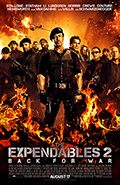 |
| Drama | Драма | 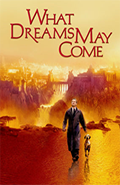 |
| Comedy | Комедия | 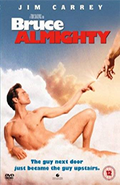 |
| Romantic comedy | Романтическая комедия | 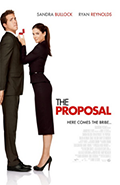 |
| Horror | Фильм ужасов |  |
| Science fiction | Фантастика | 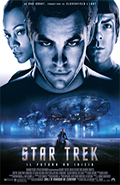 |
| Suspense (Thriller) |
Триллер |  |
| Western | Вестерн |  |
| Documentary (Non-Fiction) |
Документальный | 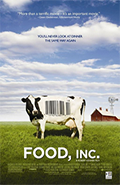 |
| Musical | Мюзикл |  |
После жанров фильмов следуют типы фильмов, и здесь мы выделим следующие:
| Kinds of films | |
|---|---|
| Low-budget | Малобюджетный |
| Box-office hit | Кассовый хит |
| A flop | Фильм-провал |
| Black-and-white | Черно-белое кино |
| Silent | Немой фильм |
| Well-dubbed | Хорошо дублированный |
| With subtitles | С субтитрами |
| Flashback story | История в воспоминаниях (например, «Зеленая миля») |
А вот такие прилагательные мы можем использовать при описании фильмов и книг:
| Adjectives about films | |
|---|---|
| Jaw-dropping | Потрясающий (дословно – такой, что челюсть отваливается) |
| Breathtaking | Захватывающий дух |
| Action packed | Наполненный действиями |
| Hair-raising | Страшный (дословно – такой, что волосы встают дыбом) |
| Tearjerker | Душещипательный (дословно – слезоточивый) |
| Spine-tingling | Берущий за живое (дословно – такой, что испытываешь покалывание в позвоночнике) |
| Eye-opening | Поучительный (дословно – открывающий глаза на что-то) |
| Thought-provoking | Заставляющий думать |
| Awe-inspiring | Внушающий благоговение |
Также я хочу привести сводную таблицу, в которой указаны прилагательные, описывающие положительные и отрицательные аспекты фильмов:
| Additional description | ||
|---|---|---|
| About… | Positive | Negative |
| Characters (главные герои) |
Believable (правдоподобные) Likeable (симпатичные) |
Shallow (поверхностные) Unconvincing (неубедительные) |
| Special effects (спецэффекты) |
Stunning (ошеломляющие) Impressive (впечатляющие) |
Cheap (дешевые) Laughable (смехотворные) Poor (убогие) Amateurish (дилетантские) |
| Photography (работа оператора) |
Outstanding (выдающаяся) Remarkable (замечательная) |
Meaningless (бессмысленная) |
| Music (музыка) |
Profound (проникновенная) | Unimaginative (лишенная воображения) Clichéd (клише) |
| Plot (сюжет) |
Has a surprising twist (имеет неожиданный поворот сюжета) | Weak (слабый) Appalling (ужасный) Incoherent (бессвязный) Mediocre (посредственный) |
| Film (фильм) |
Moving (вдохновляющий) Entertaining (развлекательный) Hilarious (смешной) Amusing (забавный) Exciting (захватывающий) Informative (информативный) Realistic (реалистичный) Gripping (захватывающий) Absorbing (увлекательный) Believable (правдоподобный) |
Overcomplicated (слишком сложный) Predictable (предсказуемый) Confusing (запутывающий) Depressing (депрессивный) Humorless (без юмора) Slow-moving (вялотекущий) Far-fetched (надуманный) |
Общие фразы для описания фильмов. A film can…
- boast a star-studded cast – похвастать звездным коллективом;
- explore (dare to tackle) many issues – исследовать (осмелиться решить) многие проблемы;
- do a commendable job translating the book to the screen – делать похвальную работу по адаптации (переводу) книги на экран;
- deal with controversial issues – иметь дело с противоречивыми проблемами;
- be a true classic of the silver screen – быть настоящей классикой киноэкрана;
- eclipse all preceding – затмить всех предшествующих;
- trigger a great deal of heated debates – вызвать много жарких дебатов;
- win universal approval – завоевывать всеобщее одобрение;
- bombard the viewer with scenes of suffering, upsetting or misleading information – «закидывать» зрителя сценами страданий, расстраивающей или неверной информацией.
Хотите порекомендовать фильм к просмотру или книгу к прочтению? Давайте сделаем это так:
- The interesting facts offered in this book/film make it stand out – интересные факты, представленные в фильме/книге, выделяют ее среди других.
- Don’t miss it – не пропусти.
- It will change the way you think – она поменяет ход ваших мыслей.
- It is well worth seeing/reading – сто́ит того, чтобы его посмотрели/прочитали.
- It is a masterpiece of its kind – это своего рода шедевр.
- It succeeds in… – преуспел в…
- It is highly entertaining read – очень развлекательное чтиво.
Как видите, вариантов написания рецензии на английском языке на книгу и фильм существует невероятное множество, и слово interesting можно теперь спокойно забыть. Данную лексику можно использовать не только при написании ревью, но и просто в разговоре, описывая свои впечатления от художественного произведения. Кроме того, во многих международных экзаменах по английскому языку (FCE, CAE, CPE) есть письменное задание – написать ревью. Для успешного выполнения этой письменной работы можно смело брать и заучивать фразы из статьи.
- О том, что представляют собой международные экзамены, упомянутые выше, читайте в моей статье «Кембриджские экзамены FCE, САЕ, CPE. Useful tips».
И напоследок предлагаем вам пройти тест, чтобы закрепить материал, на котором мы сфокусировались в этой статье:
Выберите правильный вариант ответа
Задание 1.
A series of related events that make up the main story in a book, film etc.
-
Plot
-
Cloth
-
Sword
Задание 2.
A part of a book, film, or play that tells you what happened during an earlier time.
-
Action-packed
-
Well-dubbed
-
Flashback
Задание 3.
When a play, film, or new product aren’t successful.
-
Top
-
Flop
-
Sloth
Задание 4.
Books and films about imaginary future events and characters, often dealing with space travel and life on other planets.
-
Western
-
Thriller
-
Science fiction
Задание 5.
The most exciting or important moment in a story, event, or situation, usually near the end.
-
Climax
-
Climate
-
Clinic
Задание 6.
A sad film or story that makes you cry.
-
Tearjerker
-
Teardrop
-
Eye-opening
Задание 7.
A translation of what people are saying in a foreign language film or television programme.
-
Subtitles
-
Substitute
-
Subway
Задание 8.
A film genre in which one or more heroes are involved in a series of challenges that typically include fight scenes, violence, and frantic chases.
-
Action
-
Drama
-
Musical
Задание 9.
All the performers in a film or play.
-
Cast
-
Stars
-
Flops
Задание 10.
An excellent painting, book, piece of music etc, or the best work of art that aparticular artist, writer, musician has ever produced.
-
Plot
-
Masterpiece
-
Script
Если вы нашли ошибку, пожалуйста, выделите фрагмент текста и нажмите Ctrl+Enter.
Весь мир (а не только Россия) должен знать, что «Паразиты» получили «Оскара» незаслуженно и вообще Американская киноакадемия ничего не смыслит в кино. Мы собрали для вас (почти) всю нужную лексику, чтобы вы смогли написать на английском информативный отзыв о любом фильме.
Писать рецензии на фильмы — это приятная, а главное, бесплатная практика английского языка. Кто-то платит деньги репетиторам, чтобы они проверяли их эссе, а вы оставляете отзывы на фильмы и ждете комментариев умников — они обязательно найдут у вас ошибки, особенно если не согласны с вашим мнением.
Еще больше идей, как превратить просмотр фильмов и сериалов в изучение английского вы найдете в личном плане для киноманов. Внутри полезные советы (например, как смотреть фильмы, которые не подходят по уровню), ссылки на сайты и ютуб-каналы про кино, интерактивные упражнения, списки фильмов по уровням и даже приятные плюшки вроде заставок на телефон с любимыми героями. А знаете, чем наш план лучше нетфликса? Он бесплатный.
Скачайте бесплатный PDF-план «Английский по фильмам и сериалам»
Скоро на имейл вам придет письмо с инструкцией. А пока запишитесь на бесплатное онлайн-занятие с преподавателем и получите в подарок еще 2 урока.
Скоро на имейл вам придет письмо с инструкцией. А в течение часа мы позвоним и подберем удобное время занятия. Продуктивного дня 🙂
Ой, произошла ошибка обработки. Попробуйте еще раз чуть позднее.
Ой, произошла ошибка обработки. Скорее всего, такой имейл или телефон уже зарегистрирован.
Хороший и полезный отзыв можно написать за четыре шага. Ничего не нужно придумывать: все необходимое у вас есть в голове, Википедии и этой статье.
Первым делом стоит кратко пересказать сюжет — storyline или даже просто story. Только держите себя в руках — не выдавайте, кто убийца, или хотя бы предупредите читателей, что впереди будут спойлеры: «Warning: contains spoilers» («Предупреждение: содержит спойлеры»). Небольшой лайфхак: если вы не знаете, например, как по-английски будет «воображаемый друг», а это важно для сюжета «Кролика Джоджо», идите на англоязычную версию Википедии. Переписывать дословно не стоит, а подсмотреть ключевые английские слова — можно.
Пересказывать сюжет во всех подробностях не стоит, лучше описать scenes (эпизоды, сцены), которые вас особенно впечатлили. Чтобы пояснить, о какой именно сцене идет речь, используйте фразы the scene where … (сцена, в которой…) или the scene when … (сцена, когда…). Если подобный эпизод в фильме был всего один — его точно ни с чем не перепутать, поставьте впереди существительное, описывающее происходящее: fight scene (сцена драки), sex scene (постельная сцена), chase scene (сцена погони). Здесь одним пересказом не обойтись — нужно обязательно добавить свои комментарии: удачный ли это plot twist (сюжетный поворот), чем запомнилась именно эта сцена, почему она важна для сюжета.
Представьте, что выходит фильм: в результате вируса помидоры по всей земле ожили и теперь стремятся уничтожить человечество. Полный бред. Но если в главных ролях Леонардо Ди Каприо и Брэд Питт, мы все дружненько пойдем в кино. Поэтому обязательно скажите пару слов об актерах в главных ролях — leads. Второстепенных персонажей тоже можно упомянуть, если кто-то показался особенно выдающимся, — supporting roles. Важно: самих персонажей фильма лучше называть characters; heroes живут во вселенных «Марвел» и DC.
Фильм не заканчивается на сюжете и героях. Напишите хотя бы пару слов о чем-то еще: саундтрек, костюмы и грим, декорации, спецэффекты. Вот небольшой словарик прилагательных вам в помощь.
Основная часть текста у вас уже есть, осталось эффектно закончить. В одном-двух предложениях подытожьте свои впечатления. Можете предположить, кому этот фильм наверняка понравится, а кому точно лучше воздержаться от просмотра. Вам пригодятся условные предложения первого типа: «if + you + Present Simple, you + Future Simple».
If you’re into clever humour, you’ll definitely enjoy this film.
Если вы цените интеллектуальный юмор, вам точно понравится этот фильм.
Чтобы текст получился связным и было сразу понятно, что это ваше личное мнение (а не Википедии), не забывайте время от времени использовать фразы вроде I think (я считаю). Только не уподобляйтесь Ходору из «Игры престолов» и не повторяйте без конца одно и то же.
По этому шаблону мы написали рецензию на фильм «Однажды в… Голливуде». Вот что получилось.
Если вы любите делиться своим мнением по любому вопросу, вам понравится в разговорных клубах Skyeng. Выбирайте интересную тему и обсуждайте ее онлайн с другими энтузиастами. Ученики могут посещать разговорные клубы бесплатно первые три месяца, а потом — по выгодной подписке. Подробности вам расскажет методист на вводном уроке.
How to write a film review (true, professional, and comprehensive) and not be limited to the phrase “What a great movie!”? In this article, you will find answers to the next questions:
- What is a movie review? Its features.
- How long is a movie review?
- What functions does it perform?
- What is the main purpose of a film review?
- How to prepare for writing a review?
- 10 questions you need to answer before you start writing.
- How to write a movie review: a step-by-step guide.
- Examples of reviews.
What Is a Film Review?
A film review is a critical judgment or discussion that informs about the release of a new film and contains its analysis, assessment, summary, as well as personal impressions and experiences after watching.

How long is a movie review?
On average, the length of a film review is about 1000 words.
How many paragraphs does a movie review have?
It is recommended that the film review should consist of 5-7 paragraphs.
Read also article “How to Write a Book Review: Step by Step and Examples”.
Features of Film Review
A film review is a persuasive piece of writing, it has some features as:
- A less formal style of writing.
- You need to write objectively about the film.
- But, on the other hand, movie reviews contain personal thoughts and feelings.
- The film review’s audience is wider and more diverse.
Movie reviews can be written by two groups of reviewers: professional critics and ordinary consumers. Therefore, the text of the review will differ. In the first case, when the reviewer is a professional critic, he will describe the movie instead of evaluating it. While consumer critics mostly write from a personal perspective.
What is the main purpose of a film review?
The main purpose of a film review is to inform readers about the film (what can expect from it) and to help them determine if they want to watch the movie.
Functions of Movie Review
The film review performs several functions at once: it informs, analyzes, persuades, and entertains. If you can include all of these points in your review, then you will have an excellent result in the end.
How to Write a Film Review: Preparation for Writing
Writing a review is, of course, a creative process, but you should not forget about the analytical approach to creating a convincing and high-quality text. You must take the work responsibly, which we will do now.
To write a professional film review, you first need to complete the following preparation steps:
- Of course, the first step is to find a film, if it has not been previously chosen by the manager/client/boss. There will be more chances to write a good review if the film was liked by both – film critics and you personally.
- Watch the movie at least 2-3 times. After the first viewing, you will get a general impression of the picture, and try to fully immerse yourself in the atmosphere of the film. Pay attention to the details the next time you watch it: the sound, the actor’s play, the editing, the plot.
- If you have difficulty understanding the events covered in the film (for example, historical), be sure to find additional information and research the topic.
- If after two viewings you still do not have a final assessment of the film in the form of a brief thesis, watch the film again. You can look at other works of the director who worked on this film, this will help you determine his characteristic style. Also, as an option, you can look at the game of actors in other films (for comparison).
- When watching a movie, take notes: key scenes, interesting plot twists, inconsistencies, details, and quotes. Then, based on them, you can build a review text, and a good quote can become an excellent epigraph.
- Find information about the filming: location, duration, season, details about the filming process, difficulties the production team faced, casting, etc. Such information will make the review more attractive to readers.
- If the film is nominated for awards and prizes, please include this information in your film review. For a potential viewer, such an assessment of the film will be a weighty argument in the direction of -> compulsory viewing.
10 Questions You Need to Answer Before You Start Writing a Movie Review
- Does the film split into multiple parts? A sequel, prequel, or one of the movie series?
- What is the film genre (action, comedy, historical, drama, fantasy, Western, political, thriller, gangster, horror, tragicomedy, romance, sports, mystery, science fiction)? Is the movie based on real or fictional events?
- Did the screenplay writer create an exciting plot?
- Is the rhythm of the film slow and quiet, heavy and static, or chaotic and frantic?
- What is the film’s rating according to the MPAA? (G – General Audiences. All ages admitted. PG – Parental Guidance Suggested. PG-13 – Parents Strongly Cautioned. R – Restricted. Under 17 requires an accompanying parent or adult guardian. NC-17 – Adults Only.)
- Are there any films with a similar/same theme? Sometimes it is worth mentioning some of them in a review, as a comparison.
- How can you characterize the work of a cinematographer? How accurately are the most expressive compositional, lighting solutions, as well as camera angles, selected and embodied?
- Is the film entertaining or covers a serious themes?
- Was the casting successful? Did all the actors cope with their roles?
- Is the atmosphere of the film tense, mysterious, sinister, relaxed, or romantic?
The answers to all of the above questions will help you understand how to write a film review, and above all, create a draft version of your future review. But, of course, this is not enough for the final result.
How to Write a Film Review: Step by Step
Writing a film review is a long and complicated process. Therefore, it is better to break it down into stages and move step by step. This will help you not to get lost and not get confused in the details.
- The catchy introduction.
The introductory part of the review should contain important information about the film: title, director, release date, and genre.
You can mention nominations and awards, as well as indicate the box office (if the numbers are impressive) and the cast.
In addition to “technical” aspects and a simple presentation of the plot, it is necessary to express your impression of the film in the form of a thesis, for example, to tell:
- about the connection of the film’s central idea with current events and social problems;
- about the similarity of the film’s plot with a personal life situation, personal experience, and feelings;
- about the connection of technical elements (lighting, sound, editing) with the theme of the film.
2. Pass the verdict.
Do not torment the reader and express your opinion about the film in the first paragraphs of the review.
You should not leave all the most interesting “for later”. If you decide to give a final assessment of the film at the end of the review, what are the chances that the reader will read to this end?
3. Write a summary of the plot.
Choose 4-5 main events.
Avoid the film’s ending and spoilers. Keep the intrigue. If you want to spoil and share an unusual story development, warn the reader about this.
4. Bring the feelings.
In addition to presenting the plot of the film, you should add emotions to the text of the review and show what you felt while watching it.
5. Define the main purpose of the movie.
Perhaps the film’s purpose is hidden in its plot. Or maybe the film does not pretend to solve global problems at all. Perhaps the film is entertaining, and this is its advantage – it is relaxed and simple.
Sometimes the main idea of a serious and deep film can be found in an interview with a film crew, a screenwriter, or a director.
6. Add some details of the filmmaking process.
It is important to know the measure and not to overdo it with the terminology. Here’s what you can write about:
- Cinematography: visual mood, lighting elements, shot sizes and widths, camera angles, etc.
- Sound. The main goal is to create the necessary atmosphere in the film. Sound in movies includes music, dialogue, sound effects, ambient noise, background noise, and soundtracks.
- Editing is the creation of a finished motion picture from many shot scenes. A film editor must creatively work with the layers of images, story, dialogue, music, pacing, as well as the actors’ performances to effectively “re-imagine” and even rewrite the film to craft a cohesive whole.
- Mise-en-scène (from French – placement on the stage) is the mutual arrangement of the actors and their environment on the set, natural or pavilion. Mise-en-scene includes landscapes, visual effects, the psychological state of the characters, etc.
7. The deep meaning.
You may be able to spot specific symbolic items, repetitive moments, or key phrases that give depth to the film.
8. Give examples.
It is not enough to say “an excellent game of actors”. Explain what exactly caught your attention (appearance, facial expressions, costumes, or movements of the actor).
9. A convincing conclusion.
Write about the moments in the film that made the biggest impression on you. Share a recommendation. To whom and why do you advise to watch this movie?
10. Reread the review text several times.
Edit, and correct mistakes that can spoil the impression even from a professionally written film review.
Examples of Film Reviews
To consolidate the received information, let’s move from theory to practice. Below are two examples of film reviews.
Example 1

Apocalypse Now
Review by Roger Ebert
Francis Ford Coppola’s film “Apocalypse Now” was inspired by Heart of Darkness, a novel by Joseph Conrad about a European named Kurtz who penetrated to the farthest reaches of the Congo and established himself like a god. A boat sets out to find him, and on the journey the narrator gradually loses confidence in orderly civilization; he is oppressed by the great weight of the jungle all around him, a pitiless Darwinian testing ground in which each living thing tries every day not to be eaten.
What is found at the end of the journey is not Kurtz so much as what Kurtz found: that all of our days and ways are a fragile structure perched uneasily atop the hungry jaws of nature that will thoughtlessly devour us. A happy life is a daily reprieve from this knowledge.
A week ago I was in Calcutta, where I saw mile upon square mile of squatter camps in which hundreds of thousands live generation after generation in leaky huts of plastic, cardboard and scrap metal, in poverty so absolute it is impossible to see any hope of escape. I do not mean to equate the misery of those hopeless people with a movie; that would be indecent. But I was deeply shaken by what I saw, and realized how precious and precarious is a happy life. And in such a mood I watched “Apocalypse Now” and came to the scene where Col. Kurtz (Marlon Brando) tells Capt. Willard (Martin Sheen) about “the horror.”
Kurtz is a decorated hero, one of the best soldiers in the Army, who has created a jungle sanctuary upriver inside enemy territory, and rules Montagnard tribesmen as his private army. He tells Willard about a day when his Special Forces men inoculated the children of a village against polio: “This old man came running after us and he was crying, he couldn’t see. We went back there, and they had come and hacked off every inoculated arm. There they were in a pile, a pile of little arms. . . .”
What Kurtz learned is that the Viet Cong were willing to go to greater lengths to win: “Then I realized they were stronger than we. They have the strength, the strength to do that. If I had 10 divisions of those men, then our troubles here would be over very quickly. You have to have men who are moral and at the same time who are able to utilize their primordial instincts to kill without feeling, without passion, without judgment.” This is the “horror” that Kurtz has found, and it threatens to envelop Willard, too.
The whole movie is a journey toward Willard’s understanding of how Kurtz, one of the Army’s best soldiers, penetrated the reality of war to such a depth that he could not look any longer without madness and despair.
The film has one of the most haunting endings in cinema, a poetic evocation of what Kurtz has discovered, and what we hope not to discover for ourselves. The river journey creates enormous anticipation about Kurtz, and Brando fulfills it. When the film was released in 1979, his casting was criticized and his enormous paycheck of $1 million was much discussed, but it’s clear he was the correct choice, not only because of his stature as an icon, but because of his voice, which enters the film from darkness or half-light, repeating the words of T.S. Eliot’s despairing “The Hollow Men.” That voice sets the final tone of the film.
Source: https://www.rogerebert.com/reviews/great-movie-apocalypse-now-1979
Example 2
Film review: example
Diana biopic Spencer wobbles between the bold and the bad
By Nicholas Barber
You may feel that you’ve had enough of Princess Diana’s story on the big and small screens, what with Naomi Watts taking the role in Oliver Hirschbiegel’s awful Diana in 2013, and then Emma Corrin playing her in the most recent season of The Crown, with the mantel set to be passed in Elizabeth Debicki in the next run. But, to give it its due, Pablo Larraín’s Spencer marks the only time the People’s Princess has been shown delivering a lecture on Anne Boleyn to an old coat that she has just stolen off a scarecrow, and then having a chat with the ghost of Boleyn herself shortly afterwards. The Chilean director doesn’t go in for conventional biopics, as anyone who has seen Jackie (starring Natalie Portman) or Neruda will know. And here again he has gone for a surreal portrait of his iconic subject. The snag is that his experimental art house spirit keeps bumping up against the naffness and the familiarity of British films set in stately homes, so his psychodrama ends up being both ground-breaking and rib-tickling.
It’s set over three days in 1991, from Christmas Eve to Boxing Day, at Sandringham House in Norfolk. The rest of the Royal Family has arrived for their holiday in a fleet of chauffeur-driven cars, but Diana (Kristen Stewart) rocks up on her own in a Porsche convertible, having taken a detour to visit the aforementioned scarecrow: her dilapidated childhood home, from the days when she was Lady Diana Spencer, is a field or two away from Sandringham. Her late arrival concerns the sympathetic head chef (Sean Harris) and bothers the Scottish army veteran (Timothy Spall) who has the job of ensuring that everything goes the way the Queen wants it to. Her Majesty’s insufferable Christmas traditions include weighing all the guests when they arrive and when they leave to ensure that they’ve been sufficiently gluttonous. But Diana is in no mood for festive japes. Her Christmas present from Charles (Jack Farthing) – a necklace with pearls the size of golf balls – is identical to the one he has given his mistress. And the whisper in the servants’ quarters is that the Princess is “cracking up”. The filmmakers apparently agree.
Steering away from the same territory as The Crown, Larraín and Knight don’t fill the film with awkward meals and heated arguments (although there are one of each of those). Prince Charles does some grumbling, but the Queen has hardly any lines and Prince Philip has none: they are closer to menacing waxworks than people. For most of the time, Diana is either talking to her young sons, her trusted personal dresser (Sally Hawkins) or to herself. It’s interesting, this lack of dramatic conflict and discernible plot, but it can leave the film seeming as listless and purposeless as Larraín’s Diana herself. Her favourite occupation is to wander around the estate until she finds something that has an ominous symbolic connection to her, and then make an unconvincing speech about it. Ah, pheasants! So beautiful, yet bred to be killed!
Stewart is such inspired casting that she makes all this eccentric nonsense watchable. She’s been practising Diana’s signature moves for years – dipped head, hunched shoulders – and she certainly knows what it’s like to put up with intrusive tabloid photographers. She also looks suitably fabulous in the many outfits that Diana is required to wear over the long weekend. And unlike Watts’s performance in 2013, hers doesn’t seem distractingly like an impersonation. Mind you, she delivers all her lines in little bursts of hissing whispers, so if you don’t see it with English subtitles, as its first audiences did at the Venice Film Festival, you might not understand more than half of what she says.
The effect is a bit odd, but there are lots of odd things in the film, not least the tone and the pacing, which lurch around like someone who’s had too much after-dinner port. Between Jonny Greenwood’s squalling jazz soundtrack, the hallucinations, and the blush-making sexual confessions, Spencer is a folly that wobbles between the bold and the bad, the disturbingly gothic and the just plain silly. In some scenes, it’s heart-rending in its depiction of Diana’s self-harm and bulimia. In others, it’s almost as risible as the Diana biopic from 2013, and that’s saying something. I didn’t know any more about Diana afterwards than I did beforehand, but I can’t say I didn’t enjoy it. This is a film that echoes The Shining at the start and 2001: A Space Odyssey at the end. The Crown Christmas Special it ain’t.
Source: https://www.bbc.com/culture/article/20210903-diana-biopic-spencer-wobbles-between-the-bold-and-the-bad
Sources of information:
- “The Film Analysis Handbook” by Thomas Caldwell.
- https://payforwriting.com/writing/creating-review/how-to-write-movie-review
- www.mtsu.edu
- www.sciencedirect.com/science
- Image: freepik.com
- Poster from the film Apocalypse Now: https://en.m.wikipedia.org/wiki/Apocalypse_Now
Infographics was created in visual editor Canva.
Try Canva Pro Today
Film review — топик по английскому языку с переводом и полезными фразами в конце.
Several days ago I watched a British crime thriller the “Legend”. Brian Helgeland is the scriptwriter and the director of the film as well. It is adapted from a book “The Profession of Violence: The Rise and Fall of the Kray Twins” which is based on a real story.
The film tells about the life of twin brothers, Reggie and Ronnie Kray, who were violent and vulgar gangsters. They also were iconic figures in the criminal environment of London in 1960s. They headed the most influential gang of bandits of the East-End.
They strongarmed, attempted assassination and killed several crime bosses. They also owned a nightclub where came even Hollywood stars. However, it is not easy to be a criminal and it is impossible to give up the crime. It destroyed their lives and they both ended in jail and died alone having lost everything they had and loved.
The film is very fascinating and it is a pleasure to watch it even if the plot is rather cruel and heavy. Each part of the movie completes the picture. When you watch it, you dig into the atmosphere by means of sounds, music, costumes, and decorations.
Everything is well-orchestrated and the actor that plays the main role is extremely talented. Tom Hardy plays both brothers which have absolutely different characters and personalities. And Hardy acts fantastically!
The “Legend” is definitely one of the greatest films I have ever seen. It can win all hearts!
Перевод:
Несколько дней назад я посмотрела британский криминальный триллер «Легенда». Брайан Хелгеленд – сценарист, а также режиссер фильма. Фильм снят по книге «Искусство жестокости: взлёт и падение близнецов Крэй», основанной на реальных событиях.
Фильм рассказывает о жизни братьев-близнецов, Реджи и Ронни Крэй, жестоких и грубых гангстерах. Они также были культовыми фигурами криминального мира Лондона в 1960-х. Они возглавляли одну из самых влиятельных бандитских группировок Ист-Энда.
Они организовывали вооруженные ограбления, покушения на убийства и убили некоторых криминальных авторитетов. Они также владели ночным клубом, в который приходили даже голливудские звезды. Однако не просто быть преступником, и совершенно невозможно завязать с этим делом. Оно разрушило им жизнь, и они оба закончили в тюрьме и умерли в одиночестве, потеряв все, что имели и любили.
Фильм очень увлекательный и смотреть его – сплошное удовольствие, несмотря на то, что сюжет довольно жестокий и тяжелый. Каждая часть фильма дополняет картину. Когда ты смотришь его, то погружаешься в атмосферу посредством звуков, музыки, костюмов и декораций.
Все тщательно продумано, и актер, сыгравший главную роль, необыкновенно талантлив. Том Харди играет обоих братьев, совершенно не похожих личностей с различными характерами. И Харди играет фантастически!
«Легенда» — определенно один из лучших фильмов, что я видела. Он в состоянии покорить сердца всех людей!
Выражения:
Scriptwriter – сценарист
To base on – основываться на
Iconic figure – культовая фигура
Criminal environment – криминальный мир
To strongarm – устраивать вооруженное ограбление
To attempt assassination – покушаться на убийство
Plot – сюжет
Well-orchestrated – тщательно продуманный, слаженный
Готовишься к ОГЭ или ЕГЭ?
- Тренажер ОГЭ и
- тренажер ЕГЭ
будут тебе в помощь! Удачи!
REVIEW OF A FILM
1. Введение
Этот раздел включает в себя информацию о фильме: название, режиссер, главные роли, место съемок и т.д. Здесь важны факты, а не ваше отношение к фильму.
I’d like to say some words about my favorite film / book .
I like films very much, especially fantasy/ action films /comedies. My favorite film is… .
The film appeared on the screen in …, but it is still very good – Фильм появился в … , но он до сих пор очень хорош. Its director was … Режиссер фильма — … . … played a leading role, that of .. — … играл(а) главную роль ,роль… .“…” is truly enjoyable. The plot is …exciting/ thrilling/ gripping . You love every minute of it.
2. Основная часть Краткое содержание фильма отражает исключительно главные события фильма, без подробностей, пишется в настоящем времени. Расскажите о главном герое , его жизни и событиях.
The film is set in … – Действие происходит в … The main character is … — Главный герой …
The film has some touching moments, for example, when … – В фильме есть несколько трогательных моментов, например, когда … My favorite parts in the film are … Мои любимые сцены в фильме …
3. Заключение
Напишите чем этот фильм понравился, что интересного и запоминающегося вы в нем нашли, порекомендуйте фильм слушателям.
I really love … because it is … – Я очень люблю это фильм, потому что он …
The film keeps you on the edge of your seat. – От фильма невозможно оторваться.
The film made a great impression on me. – Фильм произвел огромное впечатление на меня .
In my opinion, the main idea of the film is that… По моему мнению, главная идея фильма это…
The film is thought—provoking because … – Фильм дает почву для размышлений, потому что …
The special effects are really impressive/amazing. – Спецэффекты просто потрясающие.
It will change the way you think – он поменяет ход ваших мыслей.
It is a masterpiece of its kind – это классический шедевр своего рода.
I couldn’t take my eyes off the screen. – я не мог сдержать слез.
If you want to have a great day in watching a film, I would totally recommend. – Если вы хотите получить великолепный день от просмотра фильма, я могу это порекомендовать.
It is well worth seeing/reading – стоит того, чтобы его посмотрели/прочитали.
Для самостоятельной работы : Составь обзор фильма Джуманджи по плану .
Title
Jumanji
Director
Joe Johnston
Release Date
December 15, 1995
Genre
Adventure, Family, Fantasy
Cast
Robin Williams (Alan Parrish)
Bonnie Hunt
Kirsten Dunst
Story
Based on the book by Chris Van Allsburg
Помимо
указания жанра можно также использовать данные характеристики
Kinds of films
|
Low-budget |
Малобюджетный |
|
Box-office hit |
Кассовый хит |
|
A flop |
Фильм-провал |
|
Black-and-white |
Черно-белое кино |
|
Silent |
Немой фильм |
|
Well-dubbed |
Хорошо дублированный |
|
With subtitles |
С субтитрами |
|
Flashback story |
История в воспоминаниях (например, «Зеленая миля») |
Еще несколько
полезных прилагательных для описания фильма в-целом
Adjectives about films
|
Jaw-dropping |
Потрясающий (дословно – такой, что челюсть |
|
Breathtaking |
Захватывающий дух |
|
Action packed |
Наполненный действиями |
|
Hair-raising |
Страшный (дословно – |
|
Tearjerker |
Душещипательный |
|
Spine-tingling |
Берущий за живое |
|
Eye-opening |
Поучительный (дословно |
|
Thought-provoking |
Заставляющий думать |
|
Awe-inspiring |
Внушающий благоговение |
Также я хочу
привести сводную таблицу, в которой указаны прилагательные, описывающие
положительные и отрицательные аспекты фильмов:
Additional description
|
About… |
Negative |
||||
|
Characters (главные герои) Likeable |
Shallow Unconvincing |
||||
|
Special effects (спецэффекты) |
Stunning Impressive |
Cheap Laughable Amateurish |
|||
|
Photography (работа оператора) |
Outstanding Remarkable |
Meaningless |
|||
|
Music (музыка) |
Profound |
Unimaginative Clichéd |
|||
|
Plot (сюжет) |
Has a surprising twist |
Weak Appalling Incoherent Mediocre |
|||
|
неожиданный поворот |
|||||
|
Film (фильм) |
Moving Entertaining Hilarious Amusing |
Overcomplicated Predictable Confusing Depressing |
|||
|
Exciting Informative Realistic Gripping Absorbing Общие фразы для A film can… |
Humorless Slow-moving Far-fetched |
||||
• boast
a star-studded cast – похвастать звездным коллективом;
• explore
(dare to tackle) many issues – исследовать
(осмелиться решить) многие проблемы;
• do
a commendable job translating the book to the screen
– делать похвальную работу по адаптации (переводу) книги на экран;
• deal
with controversial issues – иметь дело с противоречивыми
проблемами;
• be
a true classic of the silver screen – быть настоящей
классикой киноэкрана;
• eclipse
all preceding – затмить всех предшествующих;
• trigger
a great deal of heated debates – вызвать много жарких
дебатов; win
universal approval – завоевывать всеобщее одобрение;
• bombard
the viewer with (…) scenes – «закидывать» зрителя … сценами.
Хотите
порекомендовать фильм к просмотру или книгу к прочтению? Давайте сделаем это
так:
• The
interesting facts offered in this book/film make it stand out
– интересные факты, представленные в фильме/книге, выделяют ее среди других. Don’t
miss it – не пропусти.
• It
will change the way you think – она поменяет ход ваших
мыслей. It
is well worth seeing/reading – сто́ит того, чтобы его
посмотрели/прочитали. It
is a masterpiece of its kind – это своего рода
шедевр.

